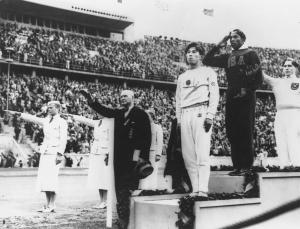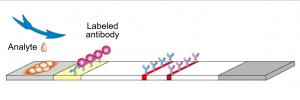Time flows at different speeds depending on what environment we are in. Time flies when we are in our favorite places with the person we like, but time spent in an unpleasant space feels only slow moving. How fast is your time going these days? We want to hear answers from various people, but there are some people who are especially hard to hear from. They are the soldiers who are cut off from society living in a certain environment for a certain period of time and are responsible for the security of the country. Since the environment they live in is very different from the readers who currently study in school, how they spend their time would be slightly different. In this article, we focused on their time and interviewed soldiers A and B; how they are spending their time and what time means to them.
Q1) Basic information about our interviewees[vj1]
A: Sergeant Choi, United Nations Army in South Sudan, Africa
Entered Hongik University College of Design in 2020, but has never been to school. (back in 2022)
Applied for overseas dispatch to have a new and special military life.
B: Private Jung, KATUSA in Dongducheon
Studied abroad since middle school, now majoring in Mechanical Engineering at UIUC, U.S.A
Q2) Tell us about your military life!
A: What’s different about serving in Sudan from military life in Korea is that the temperature is so high at lunch that the morning routine starts 30 minutes early and the afternoon routine starts 90 minutes late. Also, lunch is given 3 hours. I usually contact my friends and family at this time. I live a free life on weekends because I have no work to do.
B: Morning exercise starts at 6:30. Usually we move to an indoor gym to exercise, but we have special training on Thursdays. We call it ‘Combat Training’. It is conducted assuming combat situations, and we have to wear combat uniforms and boots. Since it’s a training based on actual warfare, it is very tough and serious. If the training day ends quickly, there is no more work on that day.
I work as a radar soldier, and I’m in charge of managing a radar. This radar is attached to a truck and is very important because it analyzes the location of missiles or bombs flying into our military camp during wartime. There are many things to prepare in advance for this position, such as taking tests to get Radar Certification every March and October. We also go to Yongsan to help the U.S. military every four months and stay together for a week. The meals we have here are always buffet-style, and most of them are Western food. KATUSA has a variety of auxiliary facilities inside, where we can enjoy sports such as table tennis and basketball. We can leave the base from 6 p.m. to 9 p.m. Also we can leave base on Friday evening and return to the unit by Sunday evening.
Q3) What is the biggest difference between the time you spend as a soldier and as a civilian?
A: I think there are big differences in life pattern and environment. When I look back on my life when I was in college before joining the army, I lived as I wanted, doing what made me comfortable. I once slept all day after staying up for a few nights because my assignment was not finished. But in the military, my life became so regulated. Also, the military is not free to do many things. I am living under control of the commander’s orders, and some say this feels like a prison.
B: If you go to school, you will take classes which is good for yourself. But in the military, you will do what you have to do for the group. So I spend my time more responsibly than usual. Before joining the army, I used to be more than 10 minutes late for appointments with my friends, and I never felt how important it was to be on time. Therefore, I am confident that I will keep my appointment time when I meet my friends again.
Q4) How do you spend your maintenance time after finishing your routine as a soldier?
A: I am trying my best to make maintenance time meaningful by doing hobbies. As a hobby, I do writing or drawing. When I was with the unit in Korea, I wrote a diary and an essay. After I came to Africa, I now practice drawing with my iPad. I read books before I start my work in the morning and during my spare time after lunch. I am reading Sapiens nowadays. Sometimes I take a rest watching movies or dramas when I’m with my colleagues but I don’t enjoy it as it makes me depressed. When I don’t have anything to do, I go out and run after exercising my muscles.
B: I spend time talking about our interests with my military colleagues. Also, we use the auxiliary facilities inside KATUSA. We usually play table tennis, or soccer, or go bowling, etc. To improve my physical strength I sometimes go to the gym to exercise. I also read books that I want to read.
Q5) How has your time in the army changed your life?
A: Living a scheduled life changed me in many ways. With regular life patterns being created, my health has improved noticeably. I got in shape [vj2] so that people I met on vacation recommended I become a professional soldier. Living a regulated life also helps me focus on myself. Since Africa has some additional restrictions, it’s hard to be connected with the community due to poor Internet connections. At first, this was an inconvenience and regret. However, as time went by, I became more satisfied with this environment. I’ve been able to think a lot about what kind of life I’ve lived and how I’m going to live in the future. I could get enough rest, do more of the things I love. Overall, my life has been happier.
B: The army gave me a lot of time to think and develop myself. Unlike my major study, which always felt like there is no end, the set tasks given here are simple and I can take a rest whenever I finish it. I was able to think deeply about the relationships I had in society. This made me more mature. Also, there are many things to learn from KATUSA colleagues and seniors. There are some people who studied abroad, others who have graduated from graduate schools, or some who have run their own business. Thanks to KATUSA, I came across a lot of people I wouldn’t have met if it weren’t for the army. It is a honor to hear about their lives and spend time together here.
Q6) How do you want to spend the rest of your military life?
A: I don’t want to make a specific plans to achieve great results because I don’t even know about tomorrow’s schedule due to abnormal weather changes. I’ll be faithful to the situation given to me. Currently my position is a driver, and I am washing the car or maintaining the car for work. But when the rainy season starts soon, there will not be many things I can do. I thought about what meaningful things I could do, and I came up with an idea to assist the Public Information Department in producing brochures using my major specialty and got a positive answer. The military is not a vertical group, and it gives soldiers a chance to make suggestions if they have ideas that can help the unit. In this regard, I will try to serve in the military in a way that is beneficial to me, too.
B: It might be the same for everyone, but I have never spent a long time relaxing in my life. After finishing a task, I had to do the next one. Even though I thought that I have done everything, I had to strive to find new things to do. So I want to adjust after my military life for a while and have my own time. However, as the time to leave the military approaches, I will prepare to study for my major by reviewing my studies that I missed.
Chung Yeongyu ygchung00@naver.com
<저작권자 © 홍익대영자신문사, 무단 전재 및 재배포 금지>





